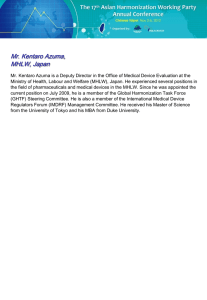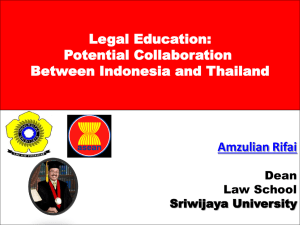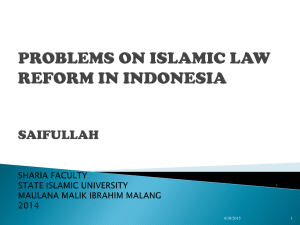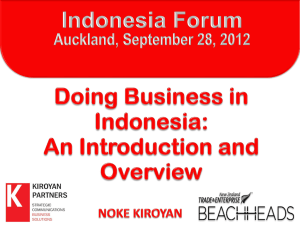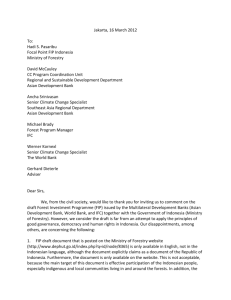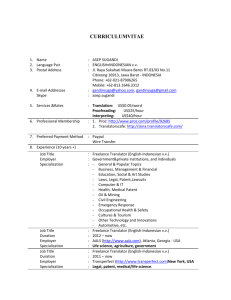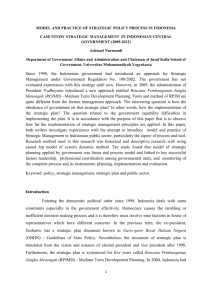Business regulations for small and medium
advertisement
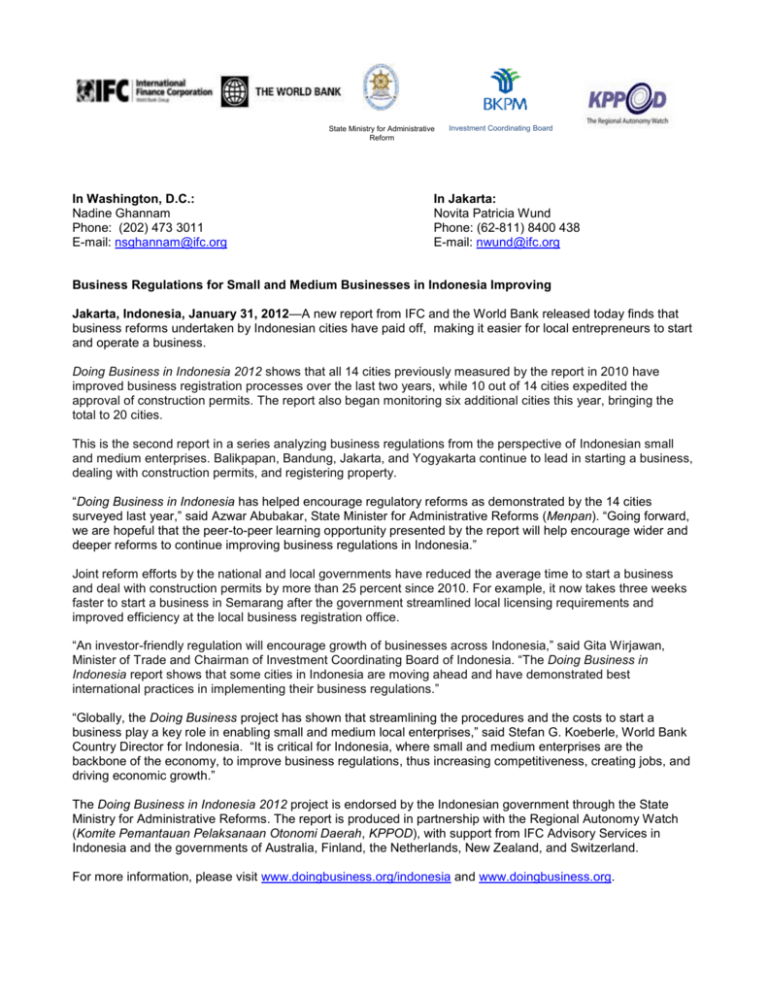
State Ministry for Administrative Reforms State Ministry for Administrative Reform In Washington, D.C.: Nadine Ghannam Phone: (202) 473 3011 E-mail: nsghannam@ifc.org Investment Coordinating Board In Jakarta: Novita Patricia Wund Phone: (62-811) 8400 438 E-mail: nwund@ifc.org Business Regulations for Small and Medium Businesses in Indonesia Improving Jakarta, Indonesia, January 31, 2012—A new report from IFC and the World Bank released today finds that business reforms undertaken by Indonesian cities have paid off, making it easier for local entrepreneurs to start and operate a business. Doing Business in Indonesia 2012 shows that all 14 cities previously measured by the report in 2010 have improved business registration processes over the last two years, while 10 out of 14 cities expedited the approval of construction permits. The report also began monitoring six additional cities this year, bringing the total to 20 cities. This is the second report in a series analyzing business regulations from the perspective of Indonesian small and medium enterprises. Balikpapan, Bandung, Jakarta, and Yogyakarta continue to lead in starting a business, dealing with construction permits, and registering property. “Doing Business in Indonesia has helped encourage regulatory reforms as demonstrated by the 14 cities surveyed last year,” said Azwar Abubakar, State Minister for Administrative Reforms (Menpan). “Going forward, we are hopeful that the peer-to-peer learning opportunity presented by the report will help encourage wider and deeper reforms to continue improving business regulations in Indonesia.” Joint reform efforts by the national and local governments have reduced the average time to start a business and deal with construction permits by more than 25 percent since 2010. For example, it now takes three weeks faster to start a business in Semarang after the government streamlined local licensing requirements and improved efficiency at the local business registration office. “An investor-friendly regulation will encourage growth of businesses across Indonesia,” said Gita Wirjawan, Minister of Trade and Chairman of Investment Coordinating Board of Indonesia. “The Doing Business in Indonesia report shows that some cities in Indonesia are moving ahead and have demonstrated best international practices in implementing their business regulations.” “Globally, the Doing Business project has shown that streamlining the procedures and the costs to start a business play a key role in enabling small and medium local enterprises,” said Stefan G. Koeberle, World Bank Country Director for Indonesia. “It is critical for Indonesia, where small and medium enterprises are the backbone of the economy, to improve business regulations, thus increasing competitiveness, creating jobs, and driving economic growth.” The Doing Business in Indonesia 2012 project is endorsed by the Indonesian government through the State Ministry for Administrative Reforms. The report is produced in partnership with the Regional Autonomy Watch (Komite Pemantauan Pelaksanaan Otonomi Daerah, KPPOD), with support from IFC Advisory Services in Indonesia and the governments of Australia, Finland, the Netherlands, New Zealand, and Switzerland. For more information, please visit www.doingbusiness.org/indonesia and www.doingbusiness.org. State Ministry for Administrative Reforms State Ministry for Administrative Reform Investment Coordinating Board About the World Bank Group The World Bank Group is one of the world’s largest sources of funding and knowledge for developing countries. It comprises five closely associated institutions: the International Bank for Reconstruction and Development (IBRD) and the International Development Association (IDA), which together form the World Bank; the International Finance Corporation (IFC); the Multilateral Investment Guarantee Agency (MIGA); and the International Centre for Settlement of Investment Disputes (ICSID). Each institution plays a distinct role in the mission to fight poverty and improve living standards for people in the developing world. For more information, please visit www.worldbank.org, www.miga.org, and www.ifc.org.


